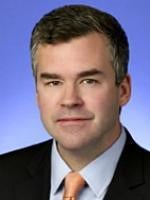Oregon currently has nine tribal casinos. A race is on to build new casinos to capture the Portland and Medford markets. The stakes are high – casino backers project $400 million in adjusted gross revenue for a casino near Portland. But despite investments of millions of dollars, each runner is frozen at the starting line. A Medford casino proposed by the Coquille Tribe faces daunting administrative hurdles. A proposed non-Indian casino only 15 miles from downtown Portland is destined to fail at the ballot box. A casino in the Columbia Gorge town of Cascade Locks proposed by the Warm Springs Tribe has been shelved. Meanwhile, the Cowlitz Tribe’s proposed 3,000-machine casino just across the Columbia River from Portland is mired in litigation.
The latest casualty in this race is a group of Canadian investors that have been pumping money into November ballot initiatives. The initiatives would pave the way for construction of “The Grange,” a development featuring 3,500 slot machines and 150 gaming tables only 20 minutes from downtown Portland at the former Multnomah Kennel Club racetrack.
Great Canadian Gaming Corporation of Vancouver, British Columbia, and Clairvest of Toronto, Ontario, have been conducting a relentless television and direct-mail marketing blitz, dominating Oregon airwaves and delivering glossy brochures to voters touting much-needed economic revitalization. However, after spending a reported $5.4 million, the investors have suspended their campaign due to a dismal response from Oregon voters and opposition from the Governor. The initiatives will remain on the November ballot in Oregon, but they are certain to fail in light of the recent highly publicized announcement of the investors’ pullout.
The Coquille Indian Tribe operates the Mill Casino, Hotel and RV Park on trust land on the Pacific coast in North Bend. The Tribe has been anonymously purchasing land in the Interstate 5 corridor about 170 miles southeast of North Bend in Medford, Oregon. The Tribe has purchased five acres outright and entered a lease agreement with the owners of the adjacent Bear Creek Golf Course. In September, Chief Kenneth Tanner announced the Coquille Tribe’s intention to seek trust status for the tribally owned property and operate a Class II gaming facility there. Although a Class II facility does not require a Tribal-State Gaming Compact, the land is an off-reservation site, meaning that the Secretary of the Interior must accept it into trust for the Tribe and the Governor must consent before any gaming may lawfully be offered thereon.
Another casualty in the race to expand Oregon gaming has been the Confederated Tribes of Warm Springs Reservation. Created by treaty in 1855, the beautiful but economically depressed Warm Springs Reservation is by far Oregon’s largest Indian reservation. The Warm Springs Tribes hoped to close the tribal Kah-Nee-Ta Casino on the reservation and open an off-reservation gaming facility in Cascade Locks, a small town overlooking the Columbia River. The site is land ceded by the Warm Springs Tribe in the Treaty of 1855.
The Tribes purchased a 25-acre parcel, secured the support of Cascade Locks, and signed a Tribal-State Gaming Compact with former Governor Ted Kulongoski for a facility with 1,800 slot machines, 60 gaming tables and a 241-room hotel. The Compact provided for 17 percent revenue sharing with the State. In January 2011, the Secretary of the Interior approved the Compact, but strong opposition from other Oregon tribes and Governor Kitzhaber resulted in a shutdown of the project. Moreover, the Cascade Locks land has never been accepted into trust. Since then, the agreement with Cascade Locks has expired.
To learn more about off-reservation gaming options in Oregon, check out the latest edition of Gaming Legal News.



 />i
/>i

